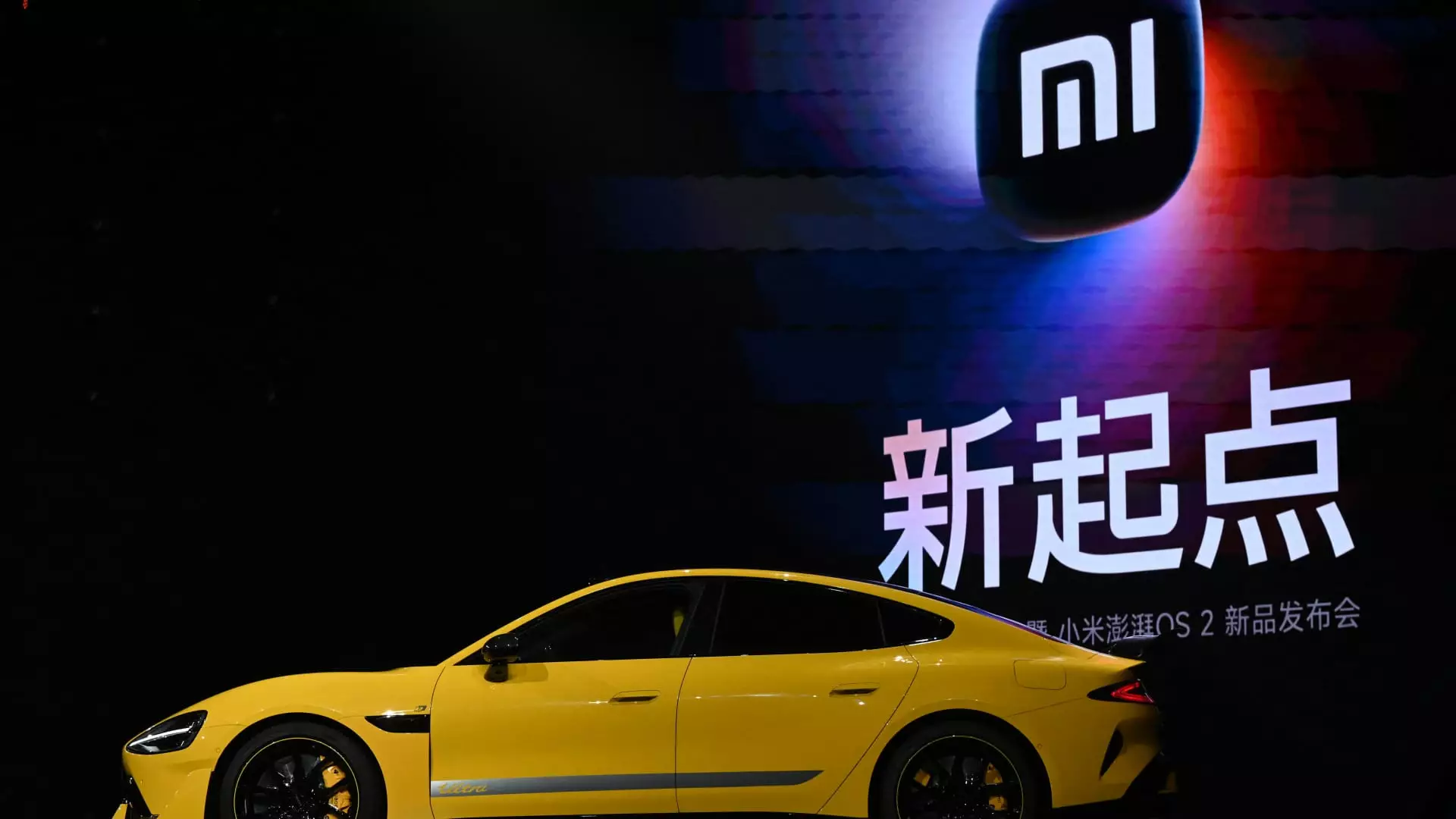China’s electric vehicle (EV) market is undergoing rapid transformation, characterized by fierce competition and continuous innovation. Among the emerging players is Xiaomi, historically known for its smartphones and consumer electronics, which recently announced remarkable delivery figures for its SU7 electric vehicle.
Xiaomi reported a remarkable milestone on Tuesday, revealing that over 20,000 units of its SU7 EV were delivered in October alone. This achievement marks a significant momentum for Xiaomi as it aims to deliver a total of 100,000 SU7 vehicles by the end of November 2023. Since introducing plans for electric vehicles in 2021, the company has made strides in establishing a dedicated manufacturing facility and bringing its first car to market. The SU7’s launch in March was strategically positioned with a competitive price point that undercuts Tesla’s entry-level Model 3 by approximately $4,000. This aggressive pricing strategy emphasized Xiaomi’s commitment to capturing market share in a densely populated EV landscape.
When assessing the performance of various electric vehicle manufacturers in China, Xiaomi’s rapid delivery rate stands in stark contrast to that of established competitors such as Xpeng and Nio. Xpeng, for instance, took about six years to reach the landmark of 100,000 electric vehicles produced, while Tesla achieved this feat in 12 years. In September, Xpeng celebrated a record monthly delivery of over 20,000 vehicles, supported largely by a new, cost-effective model. Nio, meanwhile, has struggled to maintain monthly deliveries above 20,000 units, highlighting the intense competitive pressures in the industry. Other notable brands, such as Zeekr from Geely, have also made headlines, claiming over 100,000 vehicles delivered in just over a year.
Industry analysts are beginning to recognize Xiaomi as a formidable player in the global EV market. Brian Tycangco from Stansberry Research noted that Xiaomi’s gross profit margins on electric vehicles are competitive with those of other key players like Xpeng. This projection of financial health is enhanced by Xiaomi’s ability to ramp up production effectively. The company’s recent announcement regarding preorders for its high-end SU7 Ultra model, priced at approximately $114,304, further reflects its aspiration to penetrate the luxury EV segment. With an impressive 3,600 preorders placed within 10 minutes of its announcement, Xiaomi shows no signs of slowing down.
The SU7 Ultra is positioning Xiaomi not only as a participant in the economy segment but also as a contender in the premium EV market. Notable claims include the SU7 Ultra being the fastest four-door sedan to conquer the Nurburgring, which is expected to bolster its appeal among performance-oriented customers. With the SU7 Max also on the horizon, priced relatively at 299,900 yuan, there are expectations that this will cater to a broader audience while maintaining Xiaomi’s competitive edge.
Analysts at Citi have adjusted their projections for Xiaomi, now expecting the company to deliver 250,000 cars in the coming year. This revision shows confidence in Xiaomi’s production capabilities and reflects a growing optimism among investors. Furthermore, with the recent launch of Xiaomi’s smartphone flagship Mi 15, the company appears to be leveraging its existing infrastructure and customer base to sustain growth across its product lines.
While the advancements are noteworthy, the journey ahead is not devoid of challenges. Currently, Xiaomi only markets its vehicles within China, and plans for international expansion remain vague, with potential timelines extending several years into the future. Competing against established global brands, coupled with the relentless pace of technological advancement and consumer preferences, demands sustained innovation and adaptability from Xiaomi.
Xiaomi’s entry and swift ascent in the electric vehicle sector underscore its ambition to diversify beyond consumer electronics. As production ramps up and new models are introduced, the company’s performance in the coming months will be pivotal not just for its future but for the broader landscape of electric vehicles in China. The evolving dynamics suggest that Xiaomi may very well become a significant player in the global EV arena, contingent upon its ability to successfully navigate the competitive landscape.

